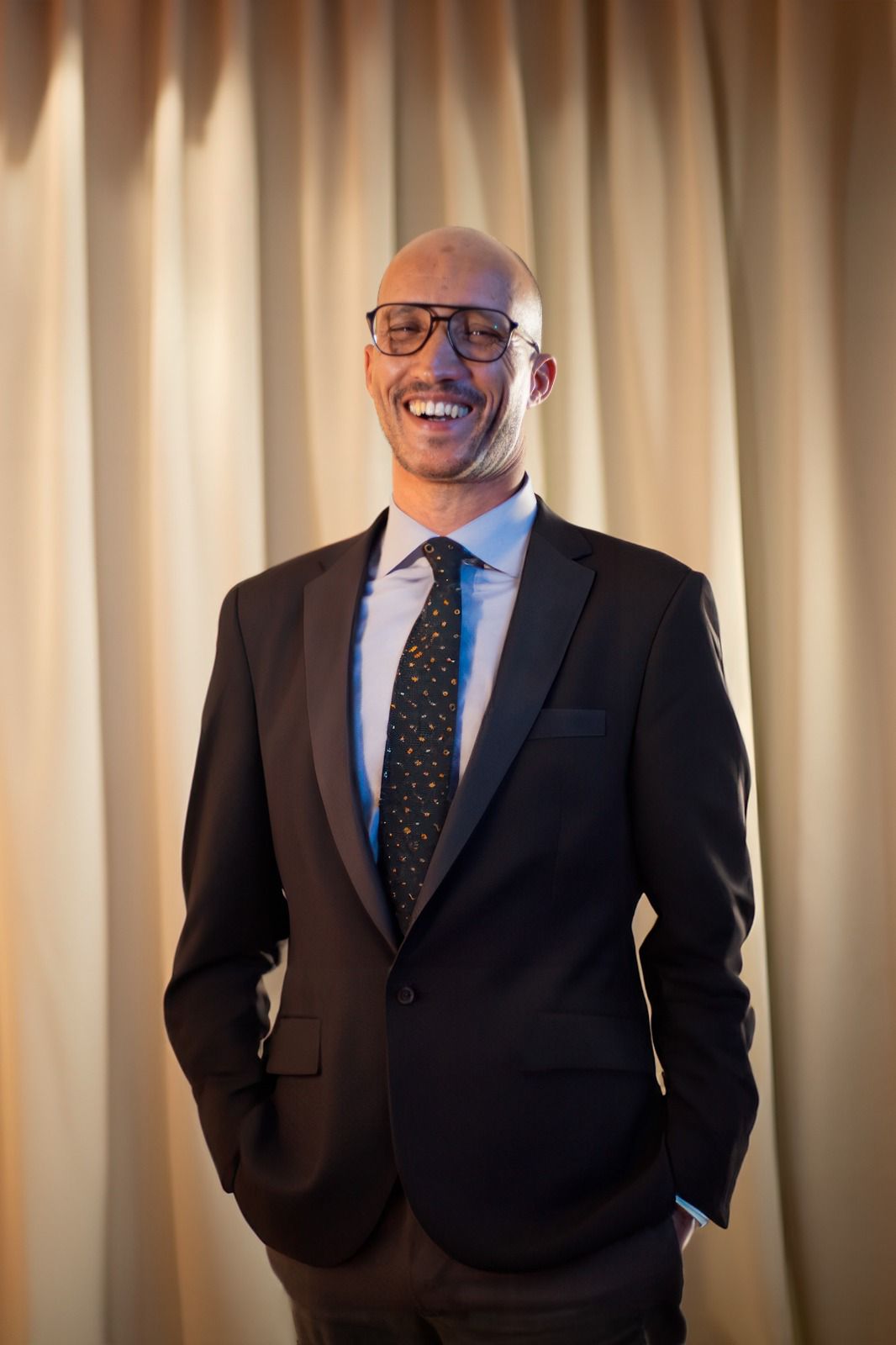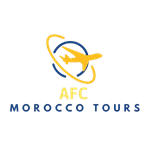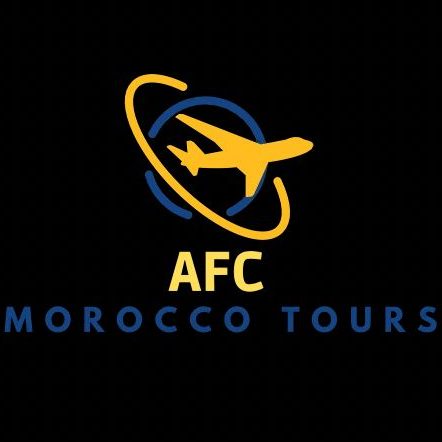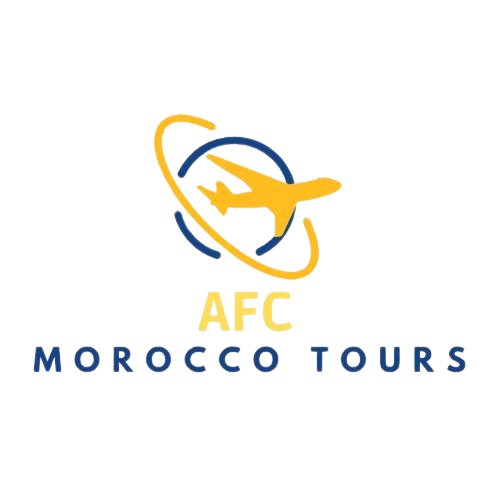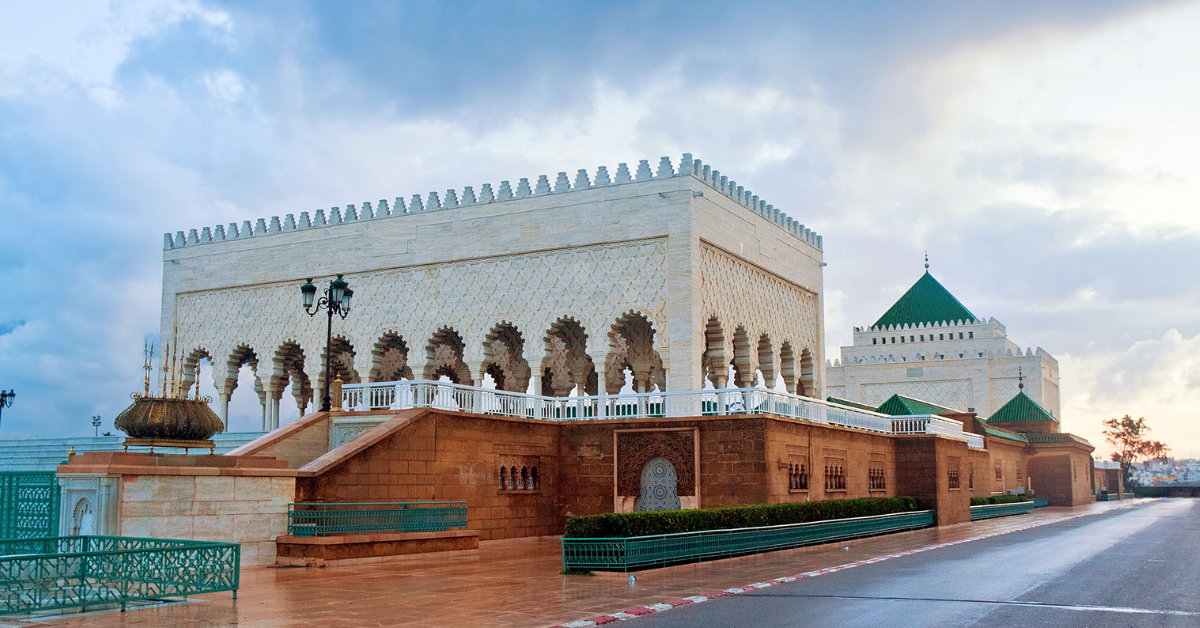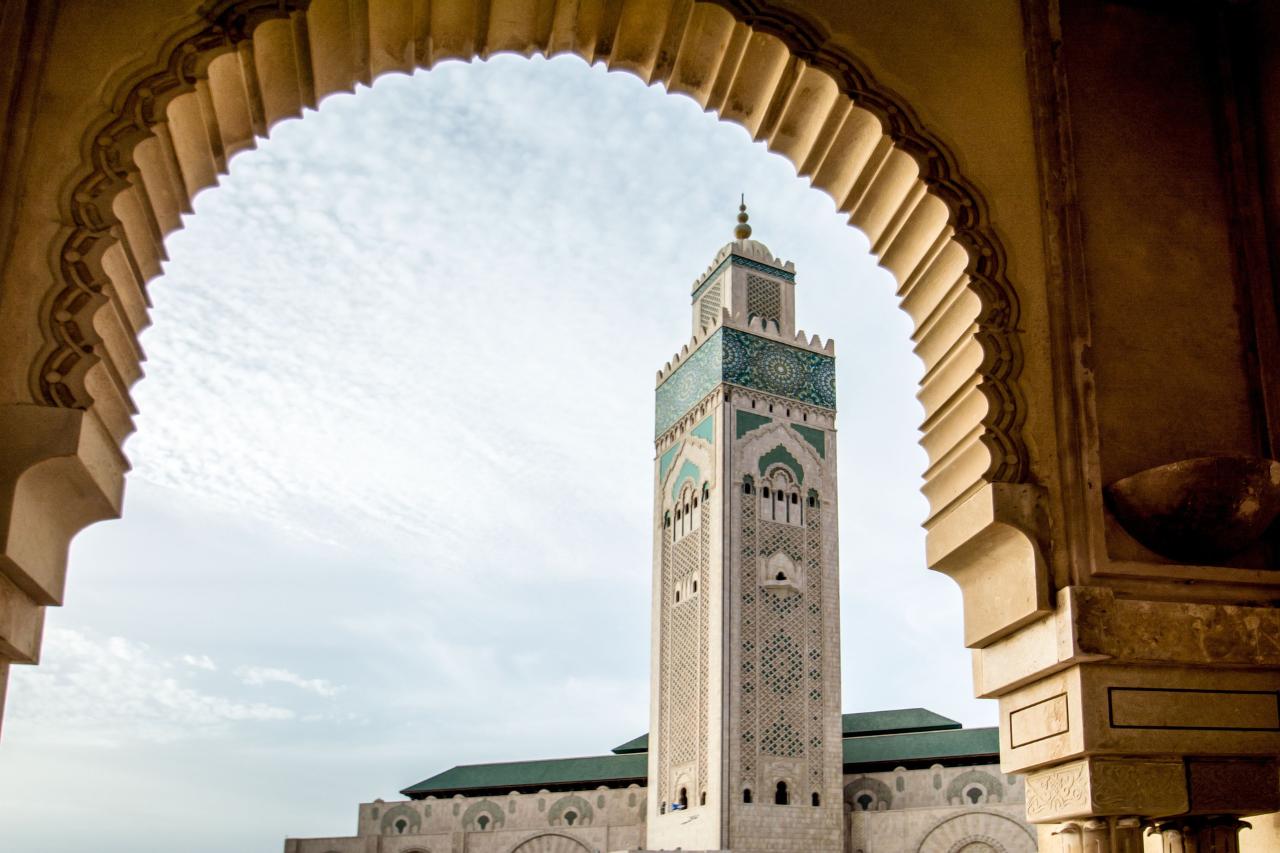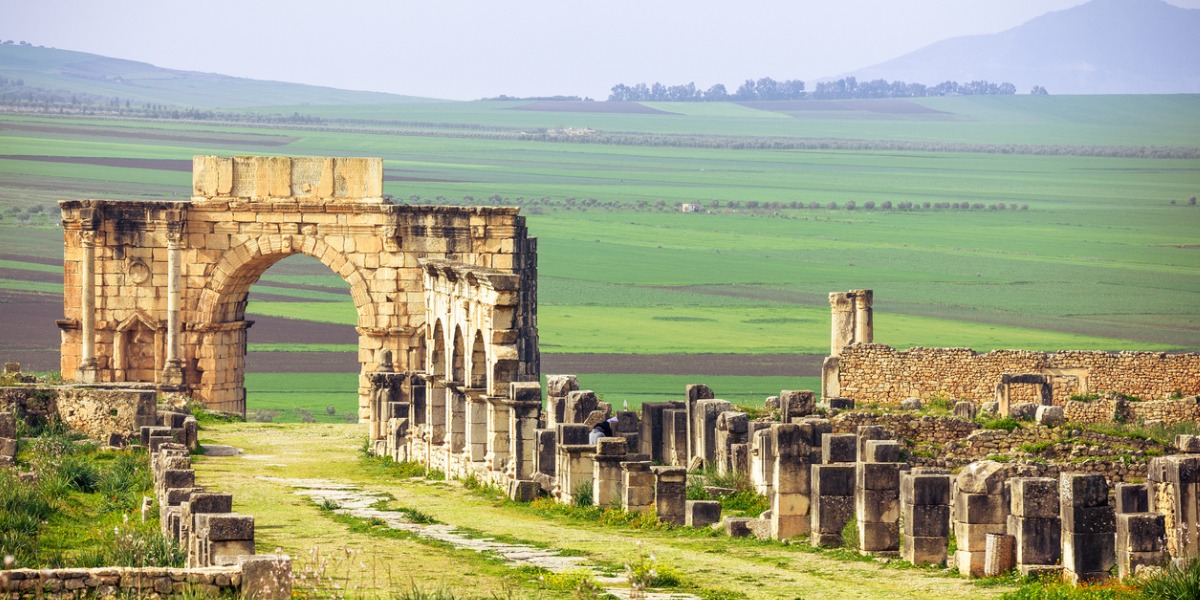Luxury Morocco Imperial & Atlas 10 Days Private Tour
Luxury Morocco Imperial & Atlas 10-Day Small-group Tour
AFC Morocco Tours offers the best of Morocco Small-group Tours that will take you on the Road of One Thousand Fortresses and explore a multitude of Kasbahs, check out the Roman ruins of Volubilis, and venture into its surroundings to experience luxury dessert camping and sleep under the pitch dark sky sprinkled with shimmering stars. Take a camel ride and enjoy the dunes in the Sahara Desert.
During this Morocco Private Tour, you will explore the medinas and alleys of some of the most famous Moroccan cities like Marrakech and Fez. Visit the countryside in the exciting 4X4, Visit Morocco, and find true enchantment.
An unforgettable 10-day Small-group Tour through this captivating land, where ancient traditions meet vibrant cultures and breathtaking landscapes. From the bustling medinas of Marrakech to the serene sands of the Sahara Desert, you will explore the diverse regions that make Morocco truly unique. Discover the stunning architecture of historical cities, indulge in the rich flavors of Moroccan cuisine, and immerse yourself in the warm hospitality of the local people.
Your Luxury Morocco Imperial & Atlas adventure will take you through the majestic Atlas Mountains, where picturesque Berber villages dot the landscape, and into the charming coastal town of Essaouira, known for its whitewashed buildings and vibrant arts scene. You’ll wander through the winding streets of Fes, one of the world’s oldest cities, and experience the stunning beauty of the Todra Gorge and the vast expanses of the Sahara Desert. Each day will bring new experiences, from exploring bustling souks to savoring traditional meals and enjoying the rhythm of Moroccan life.
Departure
CASABLANCADeparture Time
Depends on your flight timeReturn Time
Depends on your return flight timeIncluded
Camel trek (one camel per guest)Entrance FeesLocal guides in major cities: Fes; Marrakech, Casablanca mosque, Volubilis; Essaouira, Atlas MountainsMeals as per itineraryNew air-conditioned vehicle 4WD or Minivan/Mini BusOvernight in Desert Luxury CampPick-up and Drop Off ServiceProfessional driver/Tour guide during the tourNot Included
FlightsLunches and drinks unless specifiedPersonal expenses
Tour Plan
Day 1: Casablanca Arrival
Arrive in **Casablanca**, the vibrant city immortalized by the iconic 1940s Oscar-winning film, *Casablanca*. This bustling metropolis offers a unique blend of modernity and tradition, making it an exciting starting point for your Moroccan adventure.
Begin your exploration by visiting the **Hassan II Mosque**, one of the largest mosques in the world and a stunning architectural masterpiece. Perched on the edge of the Atlantic Ocean, the mosque features intricate mosaics, elegant arches, and a towering minaret that reaches 210 meters into the sky. Take the opportunity to learn about the mosque's significance and its role in the cultural and spiritual life of the city. Afterward, you can stroll along the Corniche, soaking in the seaside atmosphere, or explore the vibrant markets and cafés that reflect the lively spirit of Casablanca.
Day 2: Casablanca to Marrakech
After breakfast, we will transfer you from **Casablanca** to **Marrakech**, a journey that takes approximately two and a half hours along the toll highway. As you travel, enjoy the picturesque landscapes of Morocco, which transition from urban settings to the enchanting sights of the **High Atlas Mountains**.
Upon arriving in Marrakech, we will embark on a half-day sightseeing tour to discover the city’s rich history and vibrant culture. Our first stop will be the stunning **Bahia Palace**, a beautiful 19th-century palace known for its intricate architecture and lush gardens. Next, we will visit the **Koutoubia Mosque**, the largest mosque in Marrakech, which boasts a magnificent minaret that serves as a city landmark.
We will then explore the **Tombs of the Saadian dynasty**, where you can admire the exquisite decoration and historical significance of this site. Finally, we’ll make our way to the lively **Jemaa El Fnaa Square**, a UNESCO World Heritage site that comes alive with street performers, food vendors, and traditional crafts. As the day unfolds, you will be captivated by the vibrant atmosphere and the rich tapestry of experiences that Marrakech has to offer.
Day 3: Exploring Marrakech
Today, you will have the entire day to explore Marrakech. You can visit Djema El Fna, Ali Ben Youssef Medersa, and the gardens of the famous French architect Jardin Majorelle. Don’t forget to eat the local cuisines around Djema El Fna.
A lively, colorful city, Marrakesh is defined by its old medina and souqs, which lattice the center and resound with the hum of craftsmanship and the tantalizing aroma of exotic spices. At the heart of the medina is the Djemaa El Fna, an open space that comes alive at night with entertainers and soothsayers amid the food stalls. Over its turbulent history, the city has fallen in and out of favor with the ruling sultans, but its function as a trading place has continued regardless. Rising above this activity are proud reminders of the city’s past in the towering minarets, ornate tombs, and cavernous palaces. These are encircled by ochre ramparts, shaded beneath palms, and framed by the distant backdrop of the Atlas Mountains. Marrakesh’s many gardens offer a haven of tranquillity in this busy city. The best known of these is the Majorelle Garden, where vibrant plants surround a striking cobalt-blue Art Deco pavilion.
Day 4: Marrakech to Kasbah ait ben haddou and Ouarzazate
Visit Ouarzazate, boasts a significant role in the history of the south of Morocco, lying as it does at the confluence of the three major southern oasis valleys – the Draa, the Dades, and the Ouarzazate. Extensive fortifications built by successive sultans trying to dominate and control this traditionally subversive region have come and gone, the pisé walls washed away in sporadic rains. The only lasting impression has been left by the French, who made Ouarzazate their southern garrison town, laid out a grid of streets, and built modern buildings to line them. There are, however, a couple of well-preserved kasbahs in and around the town, and Ouarzazate is a great base for exploring the surrounding scenery: steep desert valleys filled with palms, leading into rocky desert plains. Close to Ouarzazate lies the spectacular ancient ksar town of Ait Ben Haddou, an extraordinary example of traditional clay-brick dwellings in the foothills of the High Atlas Mountains.
Day 5: Ouarzazate to Dades Gorges
Today we will head towards Dades Valley and Skoura lies astride the route from Ouarzazate to the Sahara and is a town typical of those in the Dades Valley. The modern town offers little to detain the visitor, but the palm plantations are crisscrossed by paths that run by old pisé walls, starting to crumble, up to kasbahs in equally ruinous condition. The whole effect is quite beautiful and if you are going to break your journey anywhere in the Dades Valley, Skoura is a good place to do so.
The Dades Valley is the principal route between the desert and the ancient trading oasis of Tifilalt. The main High Atlas is to the north, but at Todra the valley descends to a dramatic gorge that cuts through the mountains. It’s one of Morocco’s greatest natural sights, completed by a gently burbling stream and a welcoming cafe to rest at. At its eastern end, the valley joins that of the Ziz River, where towering palms threaten to spill over the canyon edge into the valley hundreds of meters below.
Day 6: Dades Gorges – Todra Gorges – Merzouga desert
Today, we embark on an exciting journey, starting with an exploration of the breathtaking **Todra Gorges**, one of Morocco's most dramatic natural wonders. Carved out by the Todra River, these towering canyon walls, some rising up to 1,000 feet, offer stunning views and provide a sense of awe as you walk through the gorge. The gorge’s impressive limestone cliffs are also popular with rock climbers, and we’ll have time to appreciate the natural beauty and perhaps encounter local nomadic people tending to their livestock in this rugged landscape.
Afterward, we continue our journey to **Erfoud**, where we will visit the fascinating **Khattarat**, a traditional underground irrigation system that has been used for centuries in desert regions. These ancient water channels, still functional in many areas, offer an intriguing look into how people have managed to thrive in such arid conditions by drawing precious water from beneath the surface. Erfoud is also renowned for its fossil-rich landscape, and you’ll have the opportunity to explore some of the local fossil workshops where ancient marine life has been preserved in stone for millions of years.
Finally, we head towards **Merzouga**, the gateway to the majestic **Erg Chebbi dunes**, Morocco's largest and most stunning stretch of dunes. Upon arrival, you'll have the option to explore this vast desert region in a **4x4**, discovering its unique landscapes and hidden treasures. The desert is also a haven for wildlife, especially desert birds, and if you’re lucky, you might spot rare species like **desert sparrows**, or even **flamingos** that sometimes gather around seasonal desert lakes. As the sun begins to set, the dunes turn golden, creating a mesmerizing view that marks the perfect end to a day of adventure.
Day 7: Merzouga to Fez
Today, we will start our journey from **Merzouga to Fes** a stunning exploration of Morocco's diverse landscapes, passing through the heart of the **Middle Atlas Mountains**. After bidding farewell to the magical **Sahara Desert** and its towering **Erg Chebbi dunes**, we start our drive northward, weaving through the vast **Ziz Valley**, known for its lush palm groves and ancient Kasbahs. Along the way, you’ll witness the dramatic shift in scenery, from the golden sands of the desert to fertile valleys filled with date palms, offering a glimpse of traditional Berber life in the rural areas.
As we ascend into the **Middle Atlas**, the landscape transforms into rolling hills, cedar forests, and rugged mountains. A highlight of the journey is a stop at the **Cedar Forest of Azrou**, home to the playful **Barbary macaques**. Here, you’ll have the chance to stretch your legs, interact with these curious monkeys, and enjoy the fresh mountain air. The route also takes us through the charming alpine town of **Ifrane**, often referred to as the "Switzerland of Morocco" for its European-inspired architecture and clean, orderly streets. This peaceful mountain resort offers a refreshing contrast to the arid desert, with its cool climate and green landscapes.
As we continue, the winding roads of the Middle Atlas offer breathtaking views of deep valleys, wooded hills, and remote Berber villages. By late afternoon, we arrive in the historic city of **Fes**, one of Morocco’s most culturally rich and ancient imperial cities. The journey, though long, is filled with beautiful and ever-changing landscapes that showcase the natural diversity of Morocco. Once in Fes, you can relax and reflect on the day's adventure before diving into the vibrant history and culture of this remarkable city.
Day 8: Exploring Fes
On your second day, you can take a walk to the city’s fortified entrance, explore the famous tanning industry of Fez, and visit the renowned medinas that make Fez the best destination in Morocco.
Despite the modernization, what will enchant you is the old-world architecture that still prevails in different parts of the city. There are wonderfully designed mosques such as MedersaBouInania and Medersa el-Attarine, that even though don’t open their door to non-Muslims, can be seen from outside. The complexly done tile work is an absolute artistic delight.
The King’s Palace, Saadian Tombs, and Jewish quarters are other well-known places of interest that one can explore. The King’s Palace is open only to the members of the Royal family. Others can enjoy viewing it from outside. Another noteworthy thing is that the city is full of fountains, just like important kingdom cities used to be way back in time. And given that it is still traditional, both men and women should cover themselves well when they are exploring the city.
Contrary to what the world believes, the world’s oldest university is not anywhere else but at Fez. The University of Al-Qarawiyyin is supposed to have been established in 859 AD
Day 9: Fes - Volubilis - Rabat - Casablanca
Your journey from **Fes** to **Casablanca**, passing through the historic sites of **Volubilis** and **Rabat**, offers a rich exploration of Morocco’s cultural and historical heritage.
A short drive takes you to **Volubilis**, a UNESCO-listed site and the best-preserved Roman ruins in Morocco. This archaeological treasure offers a glimpse into the once-thriving Roman city that stood at the edge of the empire. Stroll among the **mosaic floors**, explore the remains of grand houses, temples, and public baths, and marvel at the **Triumphal Arch**. The site provides a stunning view of the surrounding fertile plains and olive groves, offering a serene and historical contrast to the bustling cities.
Next, you continue to the capital city of **Rabat**, where modernity and tradition blend seamlessly. In Rabat, you’ll visit the majestic **Hassan Tower**, an incomplete minaret of a grand mosque from the 12th century, and the nearby **Mausoleum of Mohammed V**, a beautifully designed resting place of the royal family. The peaceful **Kasbah of the Udayas**, with its Andalusian gardens and blue-and-white streets, offers a tranquil escape from the city’s busier parts. Rabat’s coastline and the **Royal Palace** are also worth exploring.
Your final destination is **Casablanca**, Morocco’s largest city and commercial hub. Before concluding your journey, make time to visit the impressive **Hassan II Mosque**, one of the largest mosques in the world, with its stunning architecture perched on the Atlantic coast. Take an evening stroll through the **Corniche**, or perhaps explore the city’s modern neighborhoods, where Moroccan culture meets the vibrant energy of contemporary life. This journey, filled with ancient history and modern wonders, provides a comprehensive experience of Morocco’s diverse heritage.
Day 10: Return Flight
Tour Addon
- Stargazing in the Sahara
- Explore the Majestic Gorges of Dades and Todra
- Culinary Journey: Cooking with the Locals
- Atlas Mountains Village Stay
- Visit a Women's Cooperative
- Sunset Camel Ride and Desert Camping
- Hammam and Spa Experience
Tailor Made Morocco imperial Cities and Atlas 10-Day Tour
- Stargazing in the Sahara
- Explore the Majestic Gorges of Dades and Todra
- Culinary Journey: Cooking with the Locals
- Atlas Mountains Village Stay
- Visit a Women's Cooperative
- Sunset Camel Ride and Desert Camping
- Hammam and Spa Experience
Things You Must Know Before Visiting Morocco - AFC Morocco Tours Travel Tips
More and more people are visiting Morocco every year. It’s a beautiful country. If you plan on going, here are a few pointers to help you prepare for your trip.- Dress Appropriately
- Currency and Cost
- ATMs.
- Keep Correct Change with You
- Tipping
- Be Wary of Local Guides.
- Stay Away from Strangers Offering Free Tours or Directions.
- Fridays are Holy Days and Prepare for Holidays
- Careful What Water You Use
- Pack Some Immodium
- Watch Your Pockets
- What Language Do They Speak?
- Hello(Peace Be With You): Salam Alikome (salaam a eleikum)
- Thank You:Choukran (shokran)
- No Thank You: La Choukran (la shokran). This one is useful when you have a bunch of street vendors hassling you to buy something.
- Watch Out: Although you won’t use this yourself, you’ll most likely hear this in the medinas or souks (outdoor markets). It will be said by locals coming by with a mule, motorcycle, or cart and is a warning to move to the side.
- Visiting Mosques:
- Do I Need a Visa or Vaccines?
- Ask Before Taking Photos (And You May Have to Pay).
- Souvenirs to Bring Home:
****************************
Overall, Morocco is a beautiful country, and you will be happy to experience it. As long as you’re completely aware of your surroundings, and you go in with the right mindset and expectations, you can have a wonderful experience.
